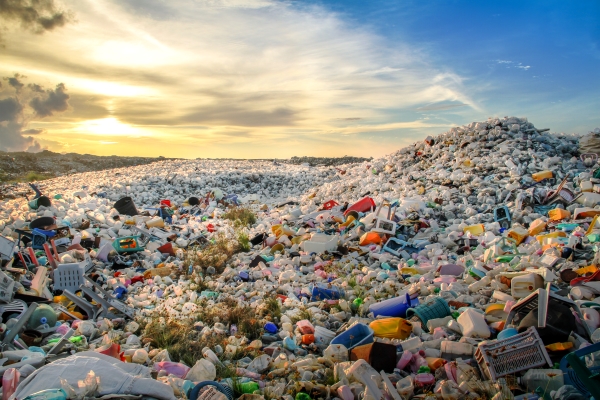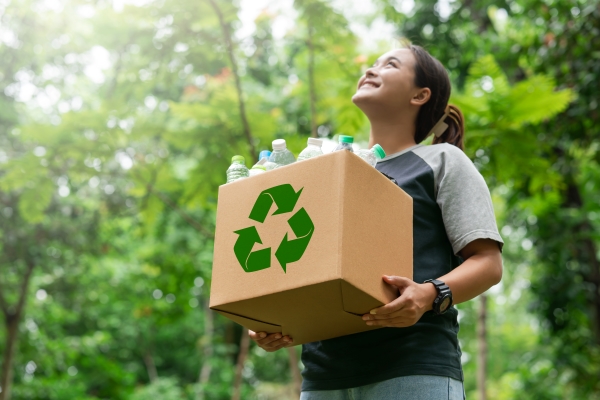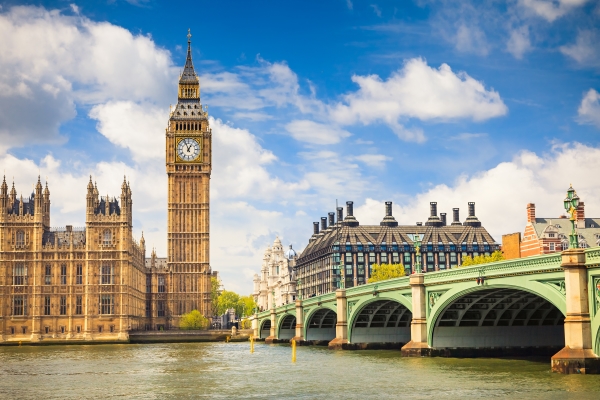London, as one of the world’s largest cities, faces a significant challenge in managing its waste production. Currently, the city generates around 7 million tonnes of waste annually, with a large portion ending up in landfills. In response to this issue, the Mayor of London has set out a vision for the city to become a zero-waste city. To achieve this goal, several objectives have been established to ensure that less waste ends up in landfills and more is recycled or reused.
Firstly, the objective is to ensure that no biodegradable or recyclable waste is sent to landfills by 2026. This means that efforts will be made to increase the separation and collection of organic waste, such as food scraps and garden waste, and to promote the recycling of materials like paper, plastic, glass, and metal.
Secondly, the objective is to increase the recycling rate of municipal waste to 65% by 2030. This will require a concerted effort to improve the existing recycling infrastructure and to educate the public about the importance of recycling and proper waste sorting practices. Additionally, measures will be taken to promote the use of recycled materials in the production of new products.
Overall, achieving these objectives will not only help minimise the negative impact of waste on the environment but also create opportunities for economic growth and job creation in the waste management sector. By becoming a zero-waste city, London can demonstrate its commitment to sustainability and serve as a model for other cities to follow.
Initiatives to Reduce Waste and Increase Recycling
Working with London’s Boroughs
- Implementing Reduction and Recycling Plans: Collaborating with local authorities to set ambitious targets for waste reduction and recycling, and providing support for effective implementation.
- Providing recycling and general waste collection services six days a week: Ensuring efficient and reliable waste collection services for households and businesses across the city, promoting high standards of environmental responsibility.
- Offering food waste collection services where feasible: Introducing dedicated food waste collections in participating boroughs, helping to minimise organic waste and maximise resource recovery.
Helping London’s Food Businesses
- Introducing Foodsave program: A comprehensive platform to help food businesses reduce waste, save money, and improve their sustainability practices.
- Reducing food waste through the Food Waste Pyramid: Encouraging businesses to implement the pyramid’s hierarchy, which prioritises reducing food waste at source, followed by redistributing surplus food, feeding animals, and recovering value through composting or energy generation.
- Using food waste for animal feed: Collaborating with farmers and agricultural organisations to divert food waste for animal feed, reducing the demand for conventional feed sources and supporting sustainable agriculture.
- Collecting food waste for composting or energy production: Working with waste management companies to ensure food waste is collected and processed effectively, creating nutrient-rich compost or generating renewable energy.

Supporting Access to Free Drinking Water
- Partnering with Thames Water to establish a £5 million fund for installing drinking water fountains and bottle refill stations across London.
- Installing over 100 drinking water fountains and bottle refill stations in busy areas, parks, and transport hubs, making free drinking water accessible to all Londoners and visitors.
- Promoting the Refill London scheme, which encourages businesses to offer free tap water refills, reducing plastic waste and supporting a healthier, more sustainable lifestyle.
Collaboration with Local Authorities and Businesses
- Delivering a policy framework to support circular economy practices, such as reducing waste, reusing materials, and recycling more efficiently.
- Accelerating the transition to a Circular Economy through mayoral strategies and the London Infrastructure Plan, which sets out a comprehensive plan for London’s infrastructure needs up to 2050.
- Supporting local authorities to reduce greenhouse gas emissions from waste management through the Emissions Performance Standard, which sets targets for reducing emissions from waste disposal and encourages the use of low-carbon technologies.
Achievements So Far
The City of London Corporation has made significant strides in implementing sustainable waste management practices, with several notable achievements in recent years. One of the most successful initiatives has been the Foodsave program, which has diverted over 1,000 of food waste from landfills annually. This not only reduces the amount of waste that ends up in landfills but also helps prevent over 150 tonnes of food waste per year. Additionally, participating businesses have saved over £550,000 per year thanks to the program.
Another important accomplishment has been the expansion of drinking water fountains and refill stations across London. The City of London Corporation has installed 28 drinking fountains and refill stations, providing useful data for future expansion of the scheme. Moreover, there has been growing participation in the Refill London scheme, which encourages businesses to offer free tap water to customers and reduce plastic bottle waste.
Furthermore, the City of London’s commitment to sustainability serves as an example for other cities to follow. By sharing best practices and collaborating with businesses, the City Corporation is helping to create a better future for generations to come. As the City continues to develop and implement innovative waste management strategies, it remains committed to its vision of a waste-free London.
Challenges and Future Directions
Reducing waste and increasing recycling rates remain crucial goals for local governments striving to minimise their environmental footprint. Despite notable strides in this direction, several obstacles must still be addressed to attain optimal waste management practices. One such challenge relates to the limited availability of space designated for collecting food waste in certain regions, hindering efficient separation and processing of organic materials.
To overcome this hurdle, local authorities should consider implementing creative solutions like shared or mobile collection points, enabling citizens to access them easily. Moreover, educational initiatives and public awareness campaigns play vital roles in promoting correct waste disposal habits among the population. These efforts can help raise understanding regarding proper sorting, hazardous material handling, and benefits associated with decreased waste generation.

Collaboration between local administrations and corporations remains essential for surmounting existing barriers. By pooling resources and knowledge, they can develop practical approaches tailored to specific regional requirements. For instance, companies might invest in infrastructure improvements or offer training programs aimed at fostering sustainable behavior’s among employees and customers alike.
Apart from resolving current difficulties, the exploration of novel methods and technology holds significant potential for optimising waste management processes. Emerging technologies capable of transforming waste into energy offer alternatives to traditional landfilling techniques while reducing reliance on fossil fuels. Closed-loop systems focusing on recycling and restoring products’ original states also deserve attention since they contribute toward diminishing raw material extraction demands.
Community involvement represents another critical factor in successfully managing waste. Engaging locals via initiatives like neighborhood clean-ups or participatory decision-making processes helps instil feelings of ownership and responsibility among individuals, ultimately contributing to long-term behavior modifications. Considering these future directions allows local governments to maintain momentum in reducing waste and transitioning towards a more environmentally conscious society.
London has made significant strides towards becoming a waste-free city, with various initiatives and policies in place to reduce waste and promote sustainability. However, much work remains to be done to achieve the ambitious targets set for 2026 and 2030. Collaboration among stakeholders, including residents, businesses, and government agencies, is crucial to success. We must continue to work together to implement innovative solutions and adopt circular economy principles to reduce waste and create a sustainable future for London. With commitment and determination, we can achieve a waste-free London and serve as a model for other cities to follow.



